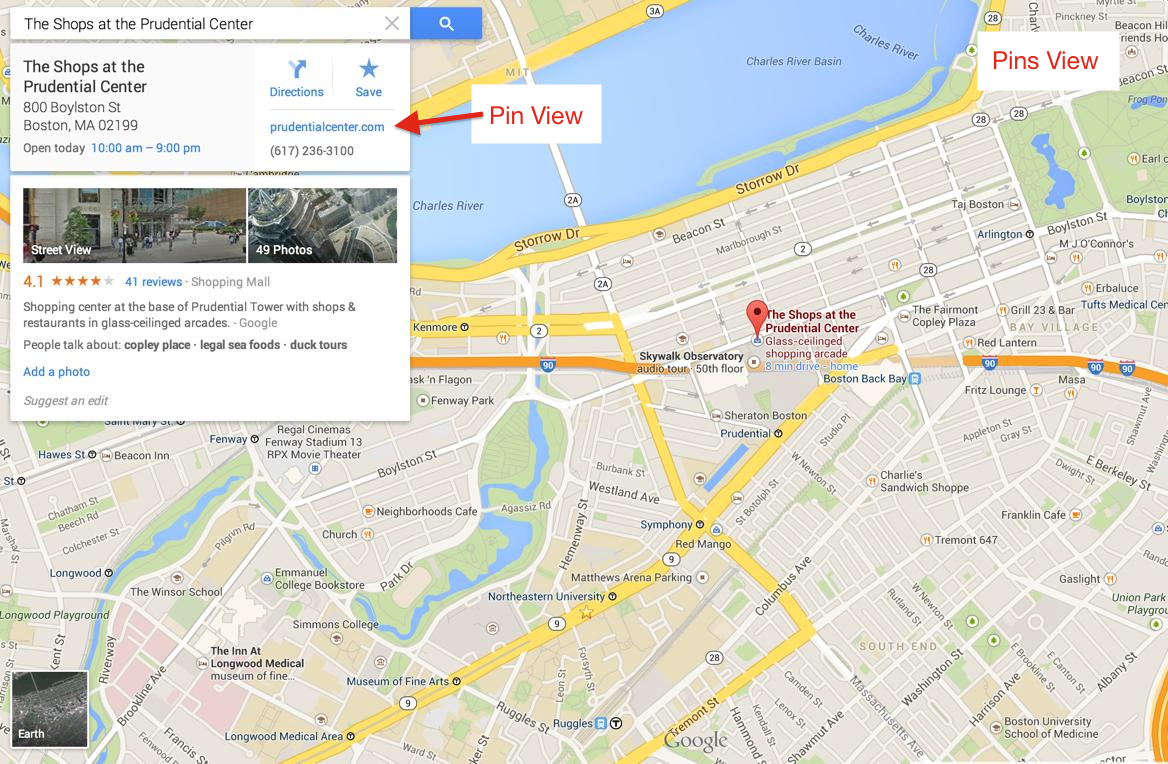Getting Ember components to respond to actions
I'm building a map application in Ember, and I need one of my components to invoke a method in another component. The UI is similar to Google Maps, with an overlay panel showing details about the selected pin:

The router looks something like this:
App.Router.map(function () {
this.resource("pins", { path: "/" }, function () {
this.resource("pin", { path: "/:pin_id" });
});
});and when the user selects a pin, the overlay panel appears. The map making up the main screen is a FullscreenMapComponent, and the portion corresponding to "Street View" in the Google snapshot is a StreetViewComponent.
The problem
When the user clicks "Street View", we want the main map to pan and zoom to the selected pin. How can we accomplish this? The StreetViewComponent is in the PinController, and the map is a completely seprate component in a different controller.
Using data-binding we could introduce a dummy property, have the street view component change that property, and have the fullscreen component respond to changes on that property; but this feels hackish, and the dummy variable wouldn't really represent anything meaningful in our application.
What we really want is for our StreetViewComponent to send out an action called, say, focusSelectedPin, and then have our FullscreenMapComponent respond to that action and invoke the appropriate method. However, if we send out an action from our street view, whichever controller or route that handles the action won't have a reference to the FullscreenMapComponent, so it won't be able to invoke any of the component's methods.
The solution
We can solve this problem by having our fullscreen component register a reference to itself upon initialization.
First, add a method to the component that executes on init:
App.FullscreenMapComponent = Ember.Component.extend({
// ...
_registerWithTarget: Ember.observer("init", function () {
this.set("register-as", this); // register-as is a new property
}),
});Then, when rendering the component, supply a property to bind register-as to:
<!-- templates/pins.hbs -->
Now, our controller has a reference to the component, and can call methods directly on it. For example, if clicking our street view component sends out a focusSelectedPin action, we could handle it like this:
App.PinsRoute = Em.Route.extend({
// ...
actions: {
focusSelectedPin: function () {
this.controller.get("fullscreenMap").panToSelectedPin();
},
},
});Presto! Now our components can respond to actions.
Thanks to @ebryn for this solution.